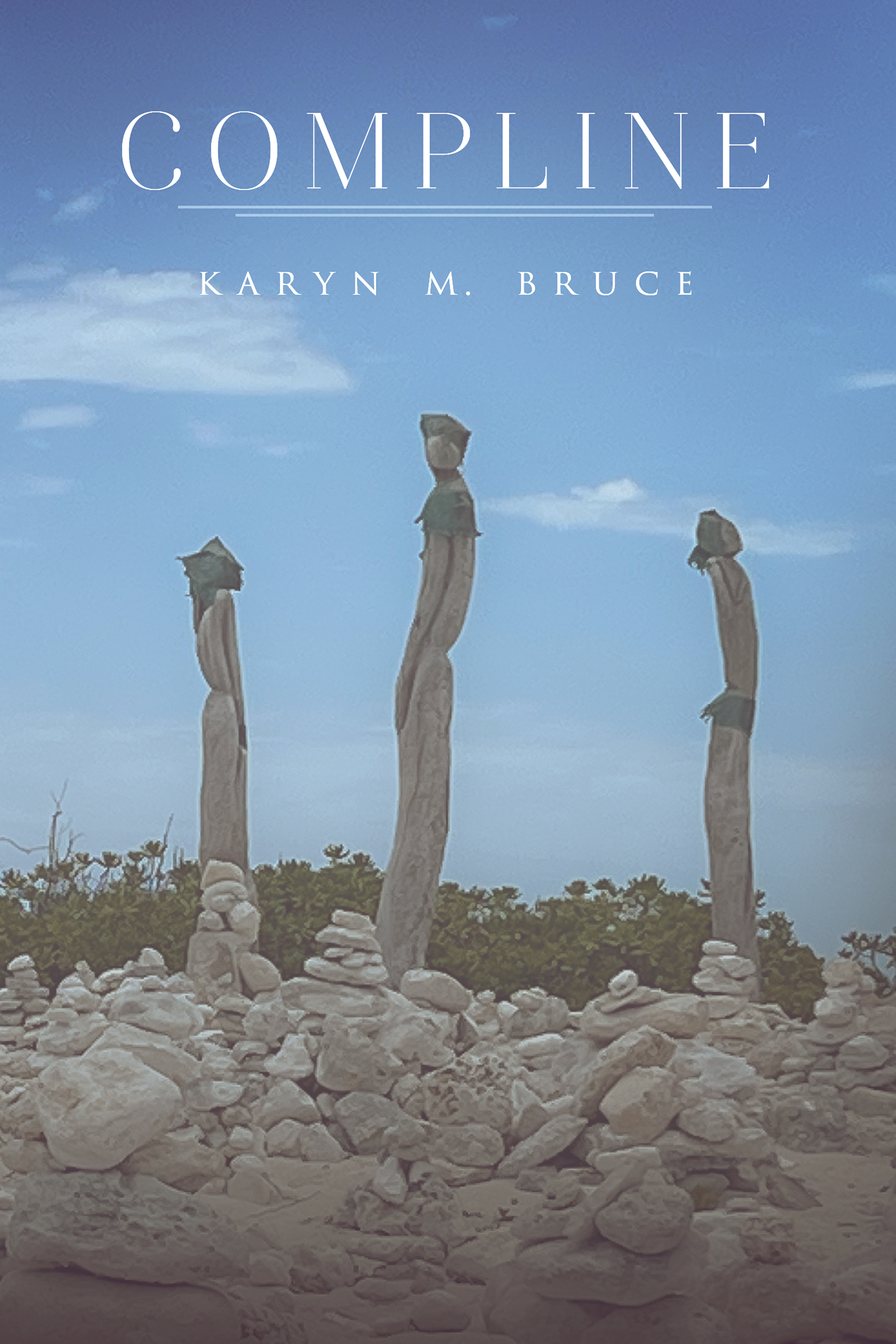Words take on physical, almost unbearable weight in COMPLINE, a powerful collection of poems by Karyn M. Bruce. Compline (or Night Prayer) is a Catholic service of quietness and reflection at the end of the day—and, as in these poems, a time to contemplate the mysteries of God and faith. Beginning with the title poem, “Compline,” Bruce explores some of the disquieting aspects of religious faith by using a childhood memory of an empty church, in which the poet is overwhelmed by the awareness of the multitude of prayers uttered here that “never leave.” They are described as a “thousand voices petitioning, pleading, beseeching day and night” that haunt the pews like ghosts—conveying the often-oppressive nature of belief in and devotion to God, as well as the profound and mundane silence in the wake of a loved one’s death.
God and death are constantly present in these poems, as in the powerful “In This Room Where She No Longer Is,” about the passing of the poet’s mother. As in “Compline,” words become flesh: the poet writes of how “[h]er last words are somewhere / pressing against the white walls,” and “[h]er last thought is fading into the white curtains.” There is a longing expressed throughout—for divine and human connection, or for a fondly remembered past—that frequently takes physical form. In “Don’t Kill the Iguana,” Bruce recalls a trip to Barnes and Noble to buy “real books” that “rest in your hands.” In “Mysteriously Ravishing,” the poet expresses her fondness for “anything with yellowed lace and pearls” and “the smell of old”—linked inextricably with her sensory and emotional experience of churches.
Some of COMPLINE’s most affecting poems are its most autobiographical: “When I Was Fifteen Years Old,” for instance, in which the adolescent poet “wanted to die at my holiness peak” before the inevitable corruption of adulthood; or “A Tale of Two in Three Parts,” a moving recollection of a fellow teacher’s death from AIDS. Several poems are written in conversation with fellow poets, such as Donald Hall—or, in “Wandering Into a Saginaw Cemetery That Afternoon,” fellow Michigander Theodore Roethke, whose introspective lyricism echoes throughout the collection.
Like Roethke, Bruce grounds her mystical spiritualism in the natural world and concrete, beautifully rendered imagery: “The smell of old people” and purses filled with “foul-smelling oils” in “What Did My Father Think I Would Do With Edgar A. Guest’s 1928 Poems.” There is also the poet’s evocation of remnants left behind by the dead in “The Gift,” such as flowers that “will join the garbage in the plastic bag”—a heartbreaking echo of the “mother’s body / Inside a black, plastic bag” from the poem about her mother’s passing.
While firmly rooted in author Karyn M. Bruce’s religious upbringing (the poet once aspired to become a nun), these poems will resonate powerfully with anyone who has wrestled with spiritual questions or confronted existential anxieties in the darkness before sleep.
The quiet, contemplative poems of Karyn M. Bruce’s COMPLINE compellingly evoke the living soul’s relationship with death and God in a way that will move any reader who has had similar concerns.
~Edward Sung for IndieReader


